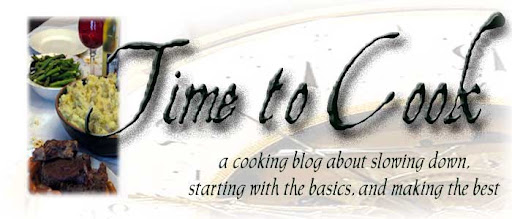Salted versus Unsalted Butter?
Jill asked if it mattered whether you use salted or unsalted butter in the Pate Brise recipe, and I told her that I don't think it matters all that much. I've used salted butter when unsalted butter was suggested in a recipe without any disasterous results.
I've never really known why unsalted butter is most called for in recipes, when most people keep the salted version in their fridge, so I decided to do some sleuthing to find out the answer.
Basically, it's this: salted butter can vary in its amount of salt, depending on the manufacturer, so if you really want to control the amount of salt in your recipe, it's best to use the unsalted variety.
Salt can also mask odors, so if you have butter in your fridge that smells fine, but has been exposed to tuna noodle casserole for two weeks, it might not taste too great in your lemon tart.
Salt extends the shelf-life of butter, so if you buy unsalted butter, it won't keep as long, so either use it up or make sure you wrap it well, place it in a plastic bag, and freeze it. Just be sure to get it out in time to use it so that it will be thawed properly.
Salt also inhibits yeast growth, so if you're making bread, that can be a factor.
Many professional cooks say that they can tell the difference between salted and unsalted butter in recipes, especially delicate ones like puff pastries, so several sites suggested that you test things for yourself. Make the same recipe twice and decide if you can tell the difference.
The important thing to remember is that if a recipe calls for butter, don't replace it with margarine. Why would you do that, anyway? ;-)
So there you have it. I hope that answers your questions!


2 comments:
Thank you!
very helpful and succinct. im off to make some puff pastry now :)
Post a Comment